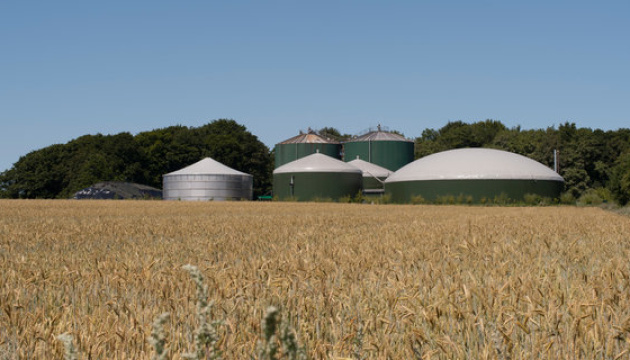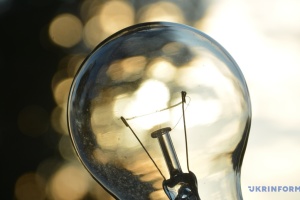
Biomethane in Ukraine: Expert comments on when production, domestic market can be launched
The relevant statement was made by Bioenergy Association of Ukraine Board Chairman Georgii Geletukha in a commentary to Ukrinform.
“In fact, there have been no operating biomethane plants in Ukraine. Two of them have been built, they are fully operational. But, they have never been operated commercially,” Geletukha told.
In his words, the reason is the price difference between biomethane and natural gas: EUR 850-900 per 1,000 cubic meters against about EUR 350 per 1,000 cubic meters respectively. In Europe, there is a demand for biomethane due to trade in greenhouse gas emissions. According to Geletukha, the use of biomethane helps to reduce emissions and, thus, European companies are ready to pay up to EUR 1,000 per 1,000 cubic meters for biomethane.
In Ukraine, biomethane exports are impossible at the moment due to the absence of a relevant customs procedure. This issue is being resolved at the legislative level, and the corresponding draft bill has already been adopted in the first reading.
“Now, it is being actively prepared for the second reading. After the draft bill is adopted in its final version, the Finance Ministry will make changes to the customs-related orders within a month. This will enable biomethane exports, and only then biomethane plants will be put into service,” Geletukha noted.
He emphasized that, due to the lack of biomethane exports, Ukraine loses foreign currency revenues, which can be spent on new investment, salary and tax payments.
Geletukha outlined two options to intensify biomethane sales on Ukraine’s domestic market: the introduction of emissions trading within the state and the implementation of the Carbon Border Adjustment Mechanism (CBAM). Emissions trading is one of the European integration requirements but, most likely, it will be introduced gradually.
“Initially, [emissions – Ed.] prices will be low, as there will be free quotas. At the second stage, the number of free quotas will reduce and, thus, a demand for them will be created. After that, we will run out of quotas and will be able to reach the European level of emissions prices,” Geletukha explained.
In his words, Europe followed that path in due time, and now carbon dioxide prices are set at EUR 70-100 per tonne there.
“When the price of carbon dioxide reaches the European level, biomethane will be remaining on the domestic market,” Geletukha added.
According to his estimates, this process may last a decade after the relevant system is launched in 2026 as scheduled. At the same time, in the short run, biomethane sales in Ukraine can be intensified through the CBAM.
In 2026, the EU will introduce the CBAM for exporters from third countries across four sectors: electricity, metallurgy, cement, and chemical industry. The exporters will have to pay the difference in the price of emissions between their country and the EU.
With such a system, enterprises will have either to undergo decarbonization or to pay the tax to the EU’s budget.
“It is more beneficial to reduce greenhouse gas emissions within the country and then bring decarbonized products to Europe. When this mechanism comes into effect, a demand will be created for biomethane too,” Geletukha concluded.
After that, in his opinion, it will be more beneficial for Ukrainian enterprises to purchase biomethane than cheaper natural gas.
A reminder that, on February 7, 2024, the Verkhovna Rada of Ukraine endorsed in the first reading draft bill No. 9456 ‘On the Customs Control and Customs Clearance of Biomethane Transported through Pipelines via the Customs Border of Ukraine’.
Ukraine continues working on a strategy for emissions trading. The draft bill ‘On the Emissions Trading System’ is expected to be completed in 2024.
First photo: open sources
Photo: uabio.org




